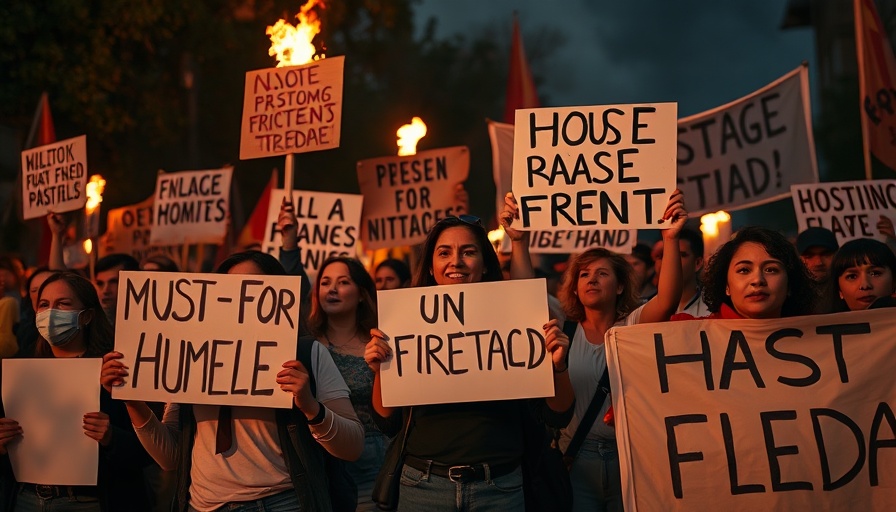
Trade Tensions Escalate: An Overview of Trump’s Tariff Threat
Former President Donald Trump's recent threat to impose an additional 50% tariff on Chinese imports brings the ongoing trade tussle between the U.S. and China to a boiling point. Following a retaliatory move by Beijing—where it escalated its own tariffs to 34%—Trump issued an ultimatum via his social media platform, demanding that China retract its countermeasure. The stakes are high: if implemented, the comprehensive tariff on Chinese goods entering the U.S. could reach a staggering 104%—a significant blow for both U.S. companies and Chinese manufacturers involved in trade.
Understanding the Impact on Global Markets
The economics behind tariffs extends beyond the immediate financial implications; they can reshape global market dynamics. With the U.S. as a primary market for various Chinese goods—from electronics to machinery—heightened tariffs could lead to increased prices for American consumers and disrupted supply chains. This could further exacerbate inflationary pressures, leading to broader economic repercussions.
Legal Implications for Businesses
As tariffs rise, lawyers and accountants are highly advised to monitor these developments closely. Businesses directly importing goods from China may face increased operational costs, and thus they must stay informed on legal avenues available to mitigate potential impacts. Understanding tariff classifications and import regulations will be crucial as these tariffs come into effect, making legal guidance invaluable for compliance and strategy.
Exploring Counterarguments: A Global Perspective
China's foreign ministry has slammed the U.S. approach, labeling it as 'economic bullying.' They argue that such tactics undermine international trade norms, which could lead to a fracturing of relationships globally. Many economists suggest that unilateral approaches to trade negotiations may yield diminishing returns, arguing for more nuanced dialogues to foster better international trade relations.
What Lies Ahead?
Trump's administration stated its stance on maintaining these tariffs until a fair deal is achieved. As this saga unfolds, the business community should prepare for a range of outcomes—from potential negotiations to unpredictable shifts in pricing structures and availability of goods. Keeping abreast of updates will empower businesses to make informed decisions, anticipating possible challenges that tariffs might introduce.
The implications of these trade negotiations extend far beyond just tariffs. Businesses, individuals, and policymakers alike must stay alert as the dynamics of this global market continue to evolve, shaping not just economic landscapes but also international relationships.
 Add Row
Add Row  Add Element
Add Element 



Write A Comment